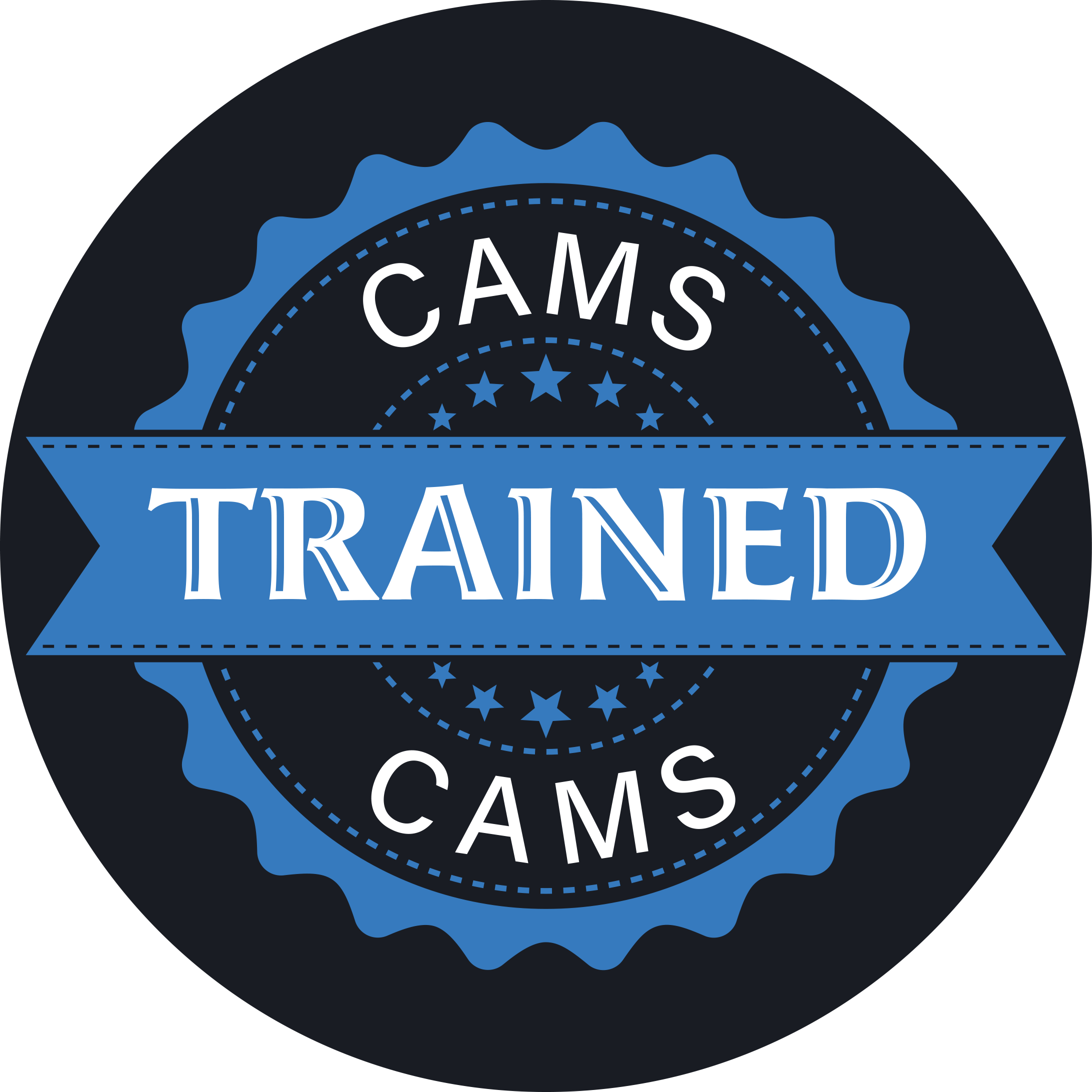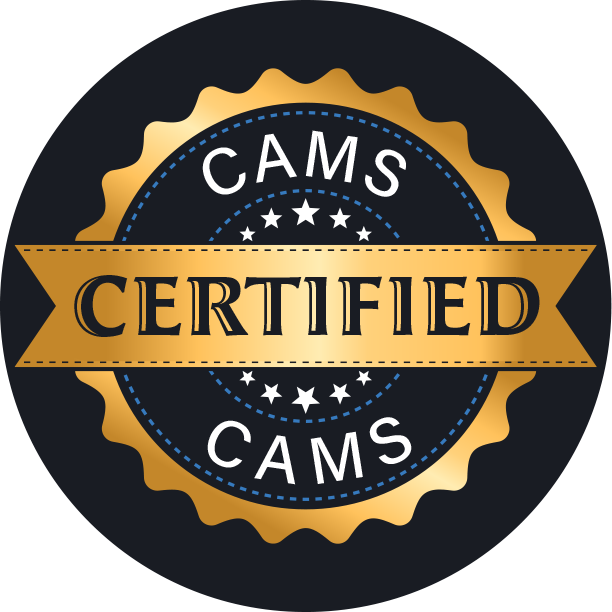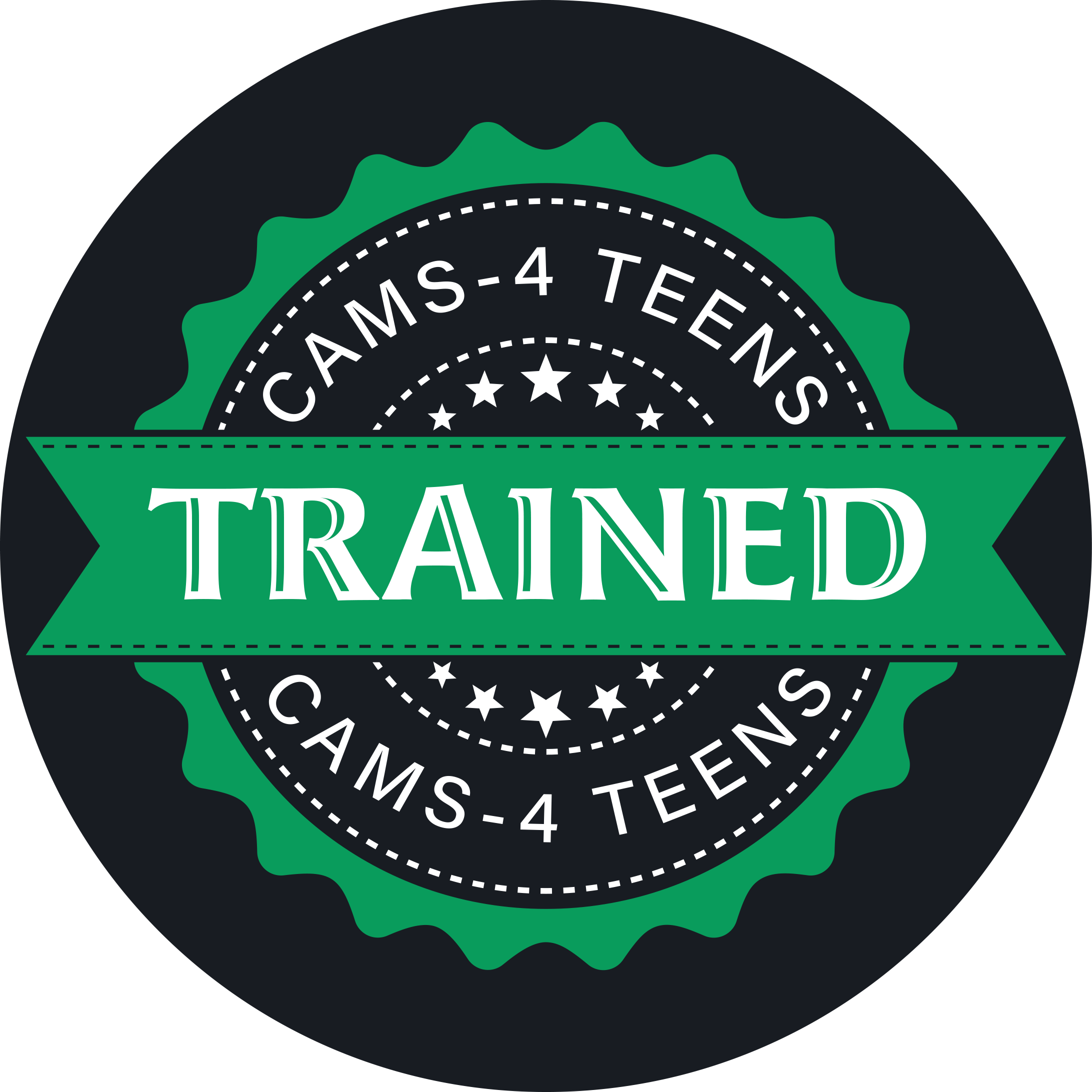CAMS-care Evidence-Based Suicide Prevention and Treatment Training
Uncover the lifesaving potential of the CAMS Framework® through CAMS-care’s evidence-based suicide prevention training.
If you are a mental health clinician, CAMS training will help you to:
- Increase your confidence in working with suicidal patients
- Assess and treat suicidal patients more effectively
- Improve your patient outcomes
CAMS training is available in a variety of formats, including online courses, in-person workshops, and consultation calls.
Whether you’re a solo practitioner or a healthcare team, we tailor our training paths to your needs. Become part of our committed community and equip yourself with the skills to make a real difference.
Suicide Treatment Training Paths

- Build Confidence
- Reduce Malpractice Risk
- 10 CE Credits
- Only $414
Get CAMS Trained™

- Proven Expertise
- Advise Colleagues
- 6 CE Credits
- Only $542
Get CAMS Certified™

- Teens & Families
- Interactive Training
- 7 CE Credits
- Only $199
We offer personalized training paths tailored to suit both individual clinicians and healthcare teams. Our recommended training path encompasses a comprehensive array of resources including the CAMS Book, an Online Course, Role-Play Training, and Consultation Calls for a well rounded learning experience. For teams or unique requirements, we provide custom training options, working closely with you to ensure efficient, effective, and cost-conscious learning in the use of the CAMS Framework®.
Suicide Prevention Training for Individuals
Our recommended learning path for individuals is to become CAMS Trained followed by CAMS Certified and then CAMS-4Teens Trained if appropriate. These training paths will help you quickly gain skill with the CAMS Framework within your work.
Suicide Prevention Training for Teams
We work closely with you to determine the best approach to meet your organization’s goals. Most start with an CAMS Education Day to train a large group of clinicians and then use a combination of our other training options to build knowledge of CAMS over time.
“The Vermont Suicide Prevention Center has been working with CAMS-care to identify a training approach that meets the needs of clinicians in Vermont through online training and consult calls. We chose CAMS-care as the preferred tool for Zero Suicide implementation in Vermont because it is both assessment and treatment and provides high-quality training and support. CAMS-care has been very responsive to feedback and this has increased overall satisfaction with the training approach.”
JoEllen Tarallo, ED.D, MCHESAll CAMS Suicide Prevention Components
CAMS BOOK
Managing Suicidal Risk, A Collaborative Approach, 3rd Edition.
• Incorporates a decade’s worth of extensive clinical research.
• Fully revised with a greater focus on CAMS as a framework for clinical intervention—not just assessment.
• In-depth case example followed throughout the book.
• Describes innovations to the approach, such as how to target and treat patient-defined “suicidal drivers.”
• CAMS Therapeutic Worksheet and CAMS Rating Scale. Includes the Suicide Status Form.
FOUNDATIONAL VIDEO COURSE
Three-Hour Video Overview of the CAMS Model presented by the Creator of CAMS, David A. Jobes, Ph.D.
• Unscripted clinical demonstration of the use of CAMs with a client through the course of 12 sessions.
• Demonstration of techniques to reduce access to lethal means.
• Development of a viable CAMS Stabilization Plan.
• Identification of direct and indirect drivers of suicide.
• Creation of a collaborative treatment plan.
• Not to be missed set-back session and resolution.
PRACTICAL ROLE-PLAY TRAINING
Online or In-Person Immersive Experience in the Use of CAMS
• Interactive exercises to practice using CAMS.
• Demonstrations of the use of CAMS in live unscripted role plays.
• Group discussions to strategize challenging case presentations, different techniques and tactics, and application to specific patient populations.
• Recommendations for implementation in systems.
• Opportunity for one on one questions with trainers.
• Available for groups or individuals.
Learn more about the Role-Play Training
CONSULTATION CALLS
Hour-Long Phone Meetings for Clinicians after completing either the CAMS Book, Online Video Course and/or CAMS Practical Role-Play Training
• Expert consultants answer questions that arise as providers use CAMS with patients.
• Case presentations with suggestions and feedback.
• Tips and strategies for addressing access to lethal means.
• Specific coping strategies and treatment modalities for treating suicidal drivers.
• How to address set-backs and maintain a collaborative approach.
• Available for groups or individuals.
EDUCATION DAY
CAMS Education Day
This online or on-site program provides an overview of data and theories regarding suicide rates, information about the field of suicidology and suicide prevention.
• It is intended for large audiences of healthcare providers and administrators, and it is appropriate for settings ranging from hospital networks and state agencies to counseling centers and school districts.
• It is offered as a half-day or full-day of online training or onsite training, but different arrangements may be possible depending on your target population and training goals.
An Important Note About Evidence-Based Training vs. Evidence-Based Treatment
Not every suicide prevention training is the same, and providers should be aware of what kind of educational program they wish to attend before committing to it.
In evidence-based training, an attendee leaves the training program knowing more about the core subject matter than they did beforehand. This is valuable for a clinician who is being educated about working with suicidal patients: learning about signs of suicidality, risk factors, etc. The content of a suicide prevention program like this can be very helpful. But, it does not teach providers to use evidence-based treatment.
Evidence-based treatments are shown to reduce suicidal ideation in a patient, often backed by years of clinical trials and research. There are four evidence-based treatments referenced by the Joint Commission, the Surgeon General, Zero Suicide, and the CDC: CAMS, DBT, CT-SP, and BCBT. If you attend a training that does not teach one of these four frameworks, you are not learning an evidence-based treatment.
CAMS-care provides evidence-based training in evidence-based treatment.

